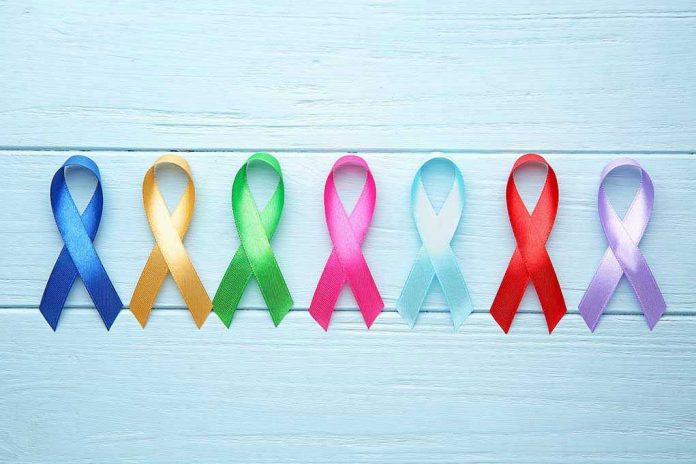
Three revolutionary breast cancer drugs have earned FDA approval in 2025, delivering hope to thousands of women whose cancers had stopped responding to standard treatments.
Story Highlights
- FDA approved three breakthrough breast cancer drugs in 2025, reducing disease progression risk by up to 40%
- New therapies target specific genetic mutations and molecular features that make cancers resistant to standard treatments
- Approvals address critical gaps for patients with hormone receptor-positive, HER2-negative, and HER2-low breast cancers
- Clinical trials demonstrated significant improvements in progression-free survival compared to existing options
Breaking Through Treatment Resistance
The FDA’s approval of imlunestrant (Inluriyo), datopotamab deruxtecan-dlnk (DATROWAY), and fam-trastuzumab deruxtecan-nxki (Enhertu) represents a seismic shift in treating advanced breast cancer. These drugs don’t just offer marginal improvements—they tackle the fundamental problem that has plagued oncologists for decades: what happens when tumors stop responding to hormonal therapy.
Hormone receptor-positive breast cancer affects roughly 70% of all breast cancer patients. While initial hormonal treatments often work well, resistance inevitably develops, leaving patients with limited options and diminishing hope.
Precision Medicine Targets Cancer’s Weak Spots
Each newly approved drug attacks cancer through a different molecular pathway. Imlunestrant specifically targets ESR1 mutations—genetic changes that help tumors evade hormonal therapy. The EMBER-3 clinical trial showed this approach reduced progression risk by nearly 40% compared to standard treatment in patients whose cancers carried these mutations.
DATROWAY and Enhertu represent a newer class called antibody-drug conjugates, which act like molecular guided missiles. They deliver chemotherapy directly to cancer cells while sparing healthy tissue. DATROWAY targets the Trop-2 protein, while Enhertu homes in on HER2-low and HER2-ultralow breast cancers—subtypes previously considered untreatable with targeted therapies.
Clinical Trial Results Reshape Treatment Landscape
The clinical evidence supporting these approvals is compelling. The TROPION-Breast01 trial for DATROWAY demonstrated meaningful improvements in progression-free survival for patients with unresectable or metastatic hormone receptor-positive, HER2-negative breast cancer. Meanwhile, Enhertu’s approval for HER2-low and HER2-ultralow disease expands treatment options for thousands of patients previously classified as having “HER2-negative” cancer.
These results matter because they represent real-world impact for patients facing limited options. When standard hormonal therapies fail, oncologists have historically had few alternatives beyond traditional chemotherapy, which often comes with significant side effects and diminishing returns.
Transforming Patient Outcomes and Hope
The rapid succession of these approvals—spanning from January to September 2025—signals an unprecedented acceleration in breast cancer drug development. Each approval addresses specific unmet needs in patient populations that have exhausted standard treatment options. Patient advocacy groups have praised these developments as game-changing for women facing advanced disease.
While the drugs represent significant advances, they also highlight the increasing complexity and cost of modern cancer care. The shift toward precision medicine requires sophisticated testing to identify which patients will benefit from each therapy, demanding greater coordination between oncologists, pathologists, and genetic counselors.
Sources:
Breastcancer.org – Imlunestrant Treatment Information
PubMed – Clinical Trial Data and Analysis
FDA – Fam-trastuzumab Deruxtecan-nxki Approval
Living Beyond Breast Cancer – New Drug Developments
National Cancer Institute – Breast Cancer Drug Database







